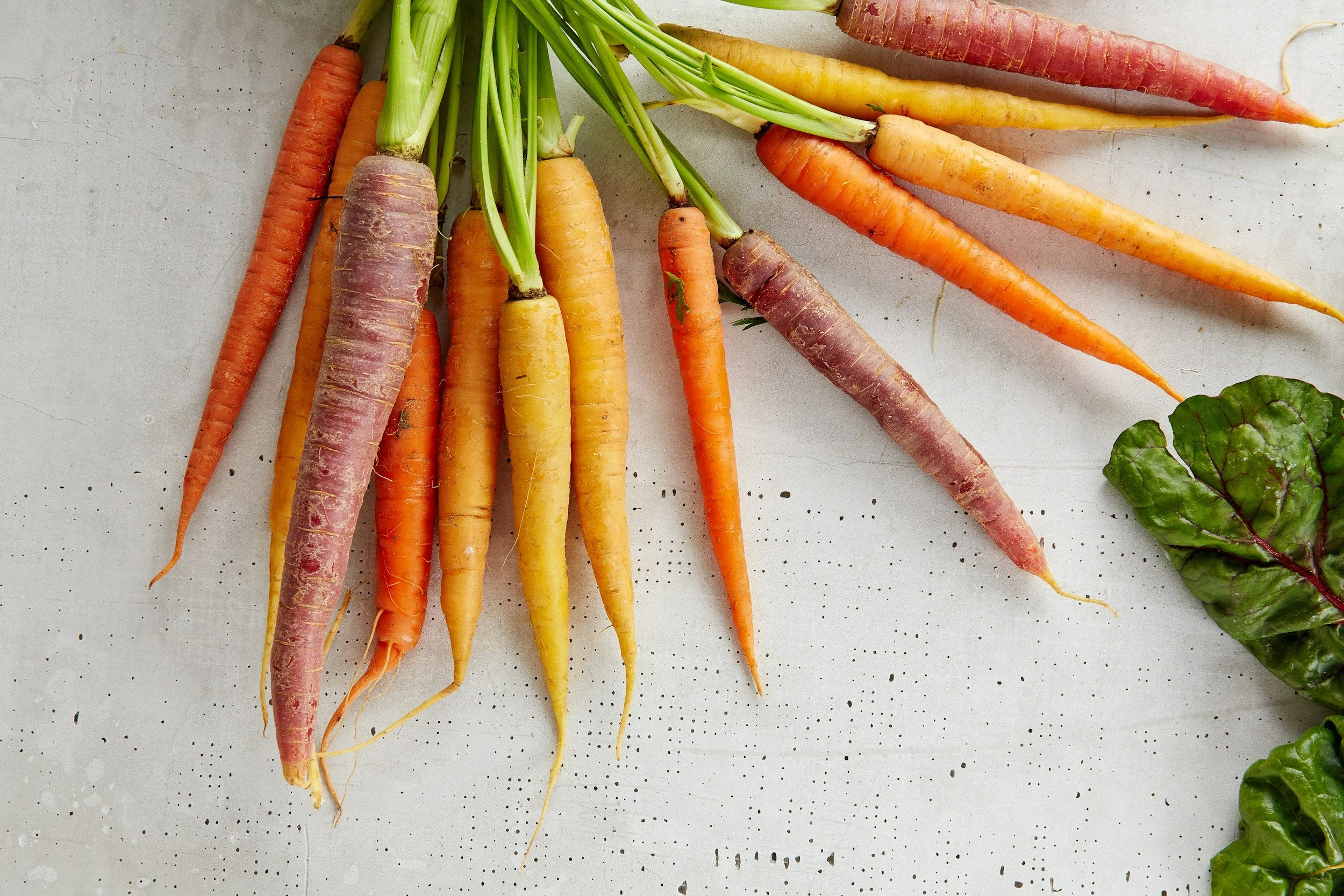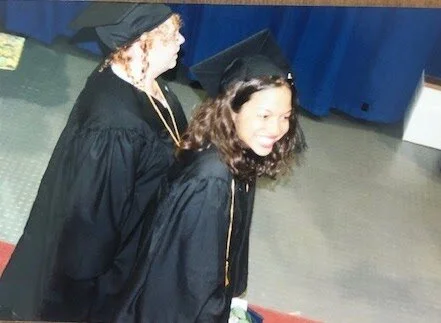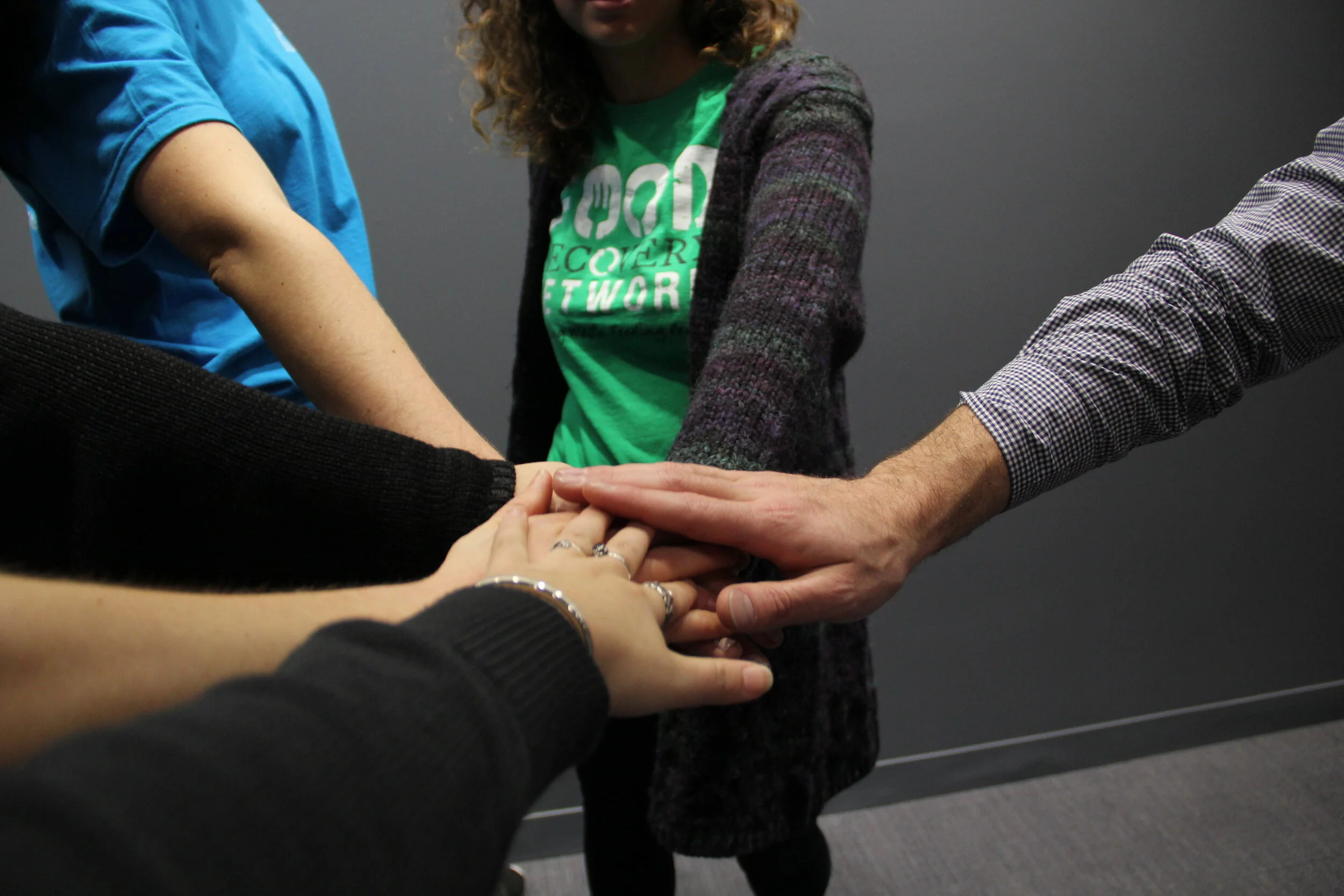
Recently published news and opinions from Food Recovery Network
Resiliency is a device to make positive change
In his book, How Children Succeed, Paul Tough makes the argument that academic achievement is an indicator of later success in one’s life, and an indicator to which we give a lot of stock. However, characteristics such as perseverance, self-control and curiosity are better indicators of a person’s ability to navigate through a complex world filled with achievements, happiness and with setbacks, uncertainty and to be pointed, with tragedy.
I grew up in a working poor family. For many, when you grow up in a household where there just are not enough resources to accommodate a comfortable life, setbacks, uncertainty and tragedy are not absorbed as readily as they can be in families that have more structures to accommodate these life situations. To compensate for these consistent stresses and pressure that all families experience, unknown to me, I began to develop deep channels of resiliency and tenacity in my early childhood that is now part of my DNA. Resilience and tenacity became the device that helped me absorb and comprehend problems. Resilience, tenacity was interwoven with other characteristics from my upbringing including a fierce work ethic I observed from my parents. Both of my parents worked long shifts, they worked double shifts, they worked for long stretches of time without a day off to try to make their ends meet for our family and that ethic became my own. Throughout my life, I also fostered curiosity and a general sense of optimism, along with my deep desire for academic pursuit. These characteristics, natural and inculcated, lighted my personal path that led me to become the Executive Director of Food Recovery Network.
Like anyone, many amazing things happened to me during the course of my life that occurred because I worked my butt off (hi undergraduate and graduate degree, I’m looking at you!), and occurred through sheer luck and any combination of those two. I work at Food Recovery Network, and I’ve dedicated my career to the nonprofit sector because I want to minimize the deleterious effects of poverty on children. I want people to be the full panoply of themselves like so many are able to do when their families have the resources to allow themselves and their children to flourish. At FRN, that starts with a meal. In the richest country, the world has ever known, as we currently define that, a meal in the US should be the easiest connection point to our humanity and to nature. When you have a nutritious meal, you can concentrate, you have the energy to play and to absorb setbacks more easily as they come, as they will for all of us.
I’ll talk more about resilience and tenacity in upcoming posts because there is so much to discuss how those characteristics play out in our daily lives, and how, for me, allowed me to become the person I am today, fighting for equality.
Gold’s Gladiators for Good
Marshall is a very small community of approximately 13,000 people with a poverty rate of 19.8%. This small town is home to Missouri Valley College (MVC). MVC offers a Humanities class also known as Nonprofit Leadership Alliance (NLA). This is a student-led club where you volunteer and get involved in the community. This is led by Professor Jamie Gold, who is a very active member of the Marshall community.
Joining the Food Recovery Network and addressing the hunger in the local community has been something Jamie Gold had envisioned for a long time. With her vision and dedicated students, Missouri Valley became an official FRN chapter during the Spring of 2019. The MVC Food Recovery Chapter partnered with Fresh Ideas which is the cafeteria on campus. Fresh Ideas has always been a supporter and willing to help MVC FRN Chapter in any way possible.
Mission Possible:
While 2020 was full of obstacles for everyone, the MVC FRN chapter utilized this time to grow so they could operate at a larger level. During this time, they were able to secure a grant and now operate out of their very own building. The building has allowed the MVC FRN Chapter to take their recoveries and package them into individual meals using the food sealer. Prior to the building, the food was packaged in the cafeteria and then distributed. With having a building they are able to store the meals on-site.
Image: MVC-FRN Chapter new packaging
Additionally, the annual Silent Auction was held virtually for the 2020 year. While the fundraiser looked different than the prior year, it was still very successful. During the 2019 school year the Trivia Night and Silent Auction, the MVC FRN Chapter raised $7,000.00. Due to the pandemic, there was no Trivia Night. Even without the Trivia Night $4,000.00 was still raised. One of the big items was a signed Travis Kelce football! Proceeds from the fundraisers were used to address hunger in the community.
Image: Steven Sims President of NLA and Savannah Land President of MVC-FRN Chapter loading food from a recovery
Where we are today:
NLA has established strong relationships in the community especially with their food partner Fresh Ideas and their distribution partner Missouri Valley Community Action Agency. Without the partnerships and the support of the community, NLA would not be able to fill the plates for 50 families every week. They are able to store food on-site as well as seal individual meals using their food sealer.
Image: Savannah Land FRN President using the food sealer to seal the food recovered
On February 14th, the FRN chapter recovered 222 pounds of food in 2 weeks’ time, which is equivalent to 180 sealed trays! The President of the MVC chapter is Savannah Land who describes the food sealer as a “game-changer!” The chapter also does online engagements such as “Sampling with Steven.” This is a time where NLA President Steven samples a food item that they have recovered and gives it a thumbs up or down. So far Steven has had great things about the items they have recovered!
We are now 3 months into the 2021 year and MVC Food Recovery Chapter has already recovered 820 pounds of food! That is 820 pounds of food that would have ended up in the landfill, but instead is going to feed people experiencing hunger in the community. Thanks to the support of community partners, the MVC Food Recovery Chapter is working to address hunger in the community. If you are ever in Marshall you can find NLA operating out of 166 Court Street in Marshall, MO. You can also follow them on social media:
Facebook: MVC Non-Profit Leadership Alliance
Instagram: @mvc_nonprofit
All donations to Food Recovery Network matched by PepsiCo – Tuesday 4/27 - Thursday 4/29
In recognition of Stop Food Waste Day today, April 28, 2021, Food Recovery Network has teamed up with PepsiCo to fight against food waste and hunger in our country.
From Tuesday 4/27 - Thursday 4/29, all donations to FRN, up to $5,000, will be matched by PepsiCo in support of our nationwide efforts to reduce food waste and end hunger.
Through targeted efforts and strategic partners, despite the adversity 2020 presented to our nationwide network, FRN collectively recovered and donated more than 1.05 million pounds of surplus food, the equivalent of over 875,000 meals to individuals and families experiencing hunger.
This year, we seek to recover more food to reach more individuals nationwide, particularly in communities with the highest need. Your donation will support FRN in recovering food to work toward ending food waste and feeding everyone who is hungry in the United States.
We thank you for your generous support of our movement!
4 Ways to Get Ready for Stop Food Waste Day on April 28th
Each year, an estimated 30-40% of food is wasted in the U.S. That is the equivalent of 130 billion meals, or a mega-farm the size of over three-quarters of the state of California. (ReFED, 2021). On April 28th, FRN along with our partners at PepsiCo wants to help you stop food waste.
Here is how:
Donate! Food Recovery Network’s mission is to reduce food waste while addressing hunger by recovering surplus food and donating it to hunger-fighting organizations that serve individuals and communities experiencing food insecurity. We mobilize 4,000 college students, dining providers, food suppliers, and local businesses at and around colleges and universities nationwide in this fight against food waste and hunger.
From Tuesday, 4/27 - Thursday, 4/29, PepsiCo will match all donations up to $5,000 in support of Stop Food Waste Day. Every dollar counts toward feeding communities across the country. Donate to FRN today!
Get Creative in the Kitchen. The talented chefs at Aramark put together a video on how you can make a meal from foods that are typically discarded. Try to make your own today and learn how to reduce food waste in your home.
Connect with FRNds for a PowerHour. Farmfield loss accounts for 17 million tons or 21% of annual food waste (ReFED, 2021). Register here to volunteer for one hour to help identify new commercial farms to donate their surplus with our partners at The FarmLink Project. (April 28, 1pm EST // 10am PST)
Learn more. Food Tank will host 25+ luminary leaders discussing the importance and offering solutions in how we solve food loss and food waste. Register here! (April 28 2pm EST // 11 PST
At FRN, we believe there is a role for everyone in the stop food waste movement. And the work continues every day. To date, we have recovered and donated more than 4.9 million pounds of food, equivalent to 4.1 million meals. We are grateful to partner with PepsiCo to stop food waste and end hunger this year in celebration of Stop Food Waste Day. We hope you join us!
What Does a Just and Equitable Food System Mean to You?
Today’s food system would look unrecognizable to what we had a century ago. What was once sustained by organic practices and family-owned farming is now a highly industrialized system that disproportionately impacts people of color and communities in need. The result? A system that further exacerbates the connection between food and people.
Enter FRN leaders who are opening the pathway to a system that is inclusive to the needs of all people and the planet.
What does a just and equitable food system mean to FRN? Watch the videos below to find out.
Cassie Olovsson, Manager of Stakeholder Engagement
Julia Ormond, Advocacy & Outreach Fellow
Katie Jones, Chief Operating Officer
Melody Riddle-Wilder, Data & Evaluation Fellow
What does a just and equitable food system mean to you? Connect with us on Twitter @FoodRecovery and let us know!













